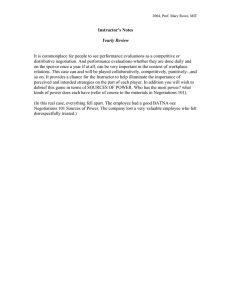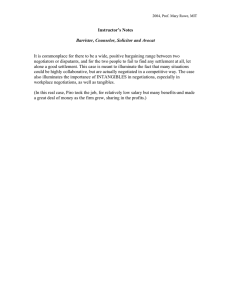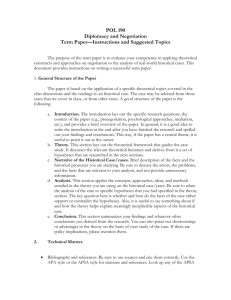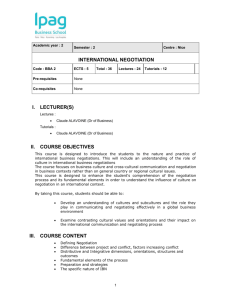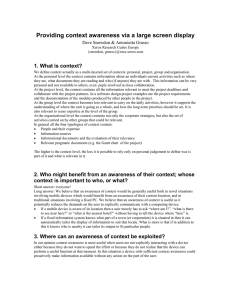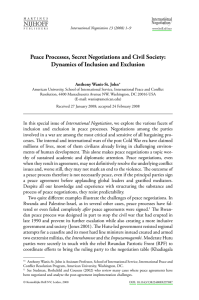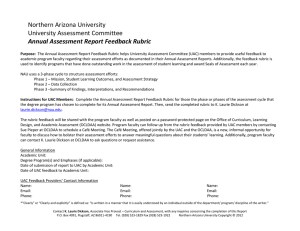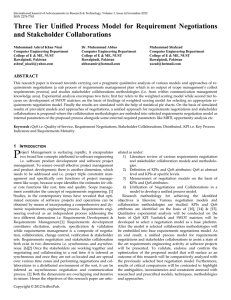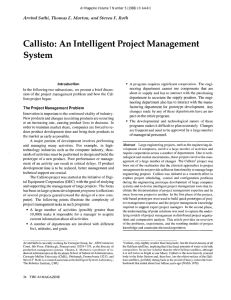Preparing for Negotiations where Culture and/or Gender Matter
advertisement
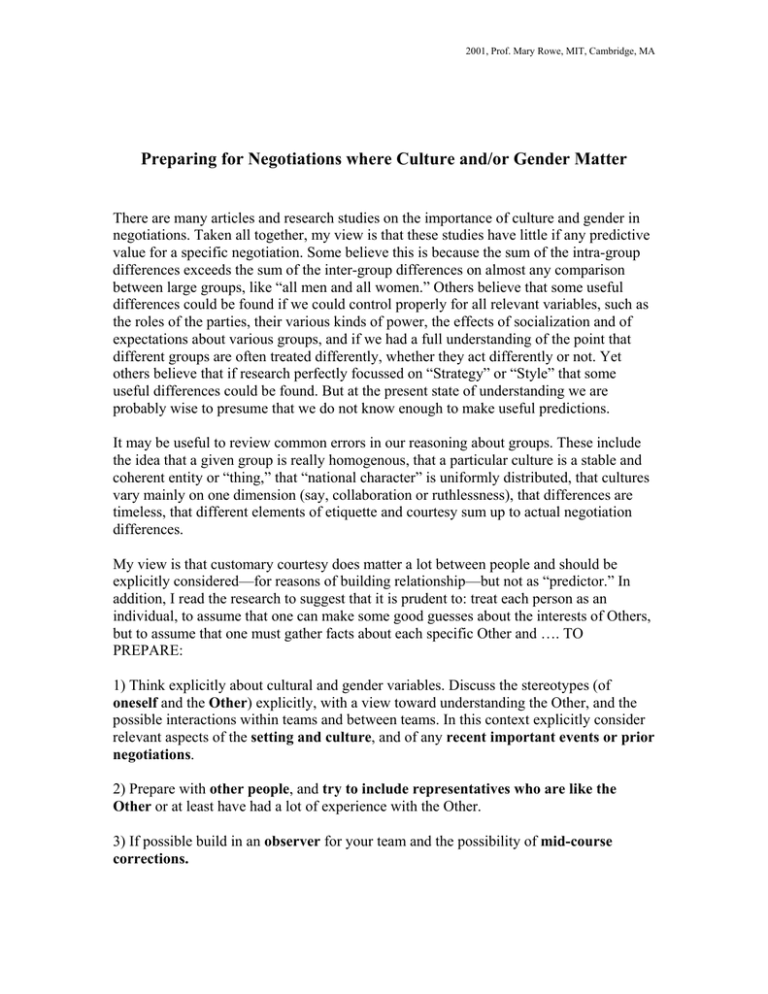
2001, Prof. Mary Rowe, MIT, Cambridge, MA Preparing for Negotiations where Culture and/or Gender Matter There are many articles and research studies on the importance of culture and gender in negotiations. Taken all together, my view is that these studies have little if any predictive value for a specific negotiation. Some believe this is because the sum of the intra-group differences exceeds the sum of the inter-group differences on almost any comparison between large groups, like “all men and all women.” Others believe that some useful differences could be found if we could control properly for all relevant variables, such as the roles of the parties, their various kinds of power, the effects of socialization and of expectations about various groups, and if we had a full understanding of the point that different groups are often treated differently, whether they act differently or not. Yet others believe that if research perfectly focussed on “Strategy” or “Style” that some useful differences could be found. But at the present state of understanding we are probably wise to presume that we do not know enough to make useful predictions. It may be useful to review common errors in our reasoning about groups. These include the idea that a given group is really homogenous, that a particular culture is a stable and coherent entity or “thing,” that “national character” is uniformly distributed, that cultures vary mainly on one dimension (say, collaboration or ruthlessness), that differences are timeless, that different elements of etiquette and courtesy sum up to actual negotiation differences. My view is that customary courtesy does matter a lot between people and should be explicitly considered—for reasons of building relationship—but not as “predictor.” In addition, I read the research to suggest that it is prudent to: treat each person as an individual, to assume that one can make some good guesses about the interests of Others, but to assume that one must gather facts about each specific Other and …. TO PREPARE: 1) Think explicitly about cultural and gender variables. Discuss the stereotypes (of oneself and the Other) explicitly, with a view toward understanding the Other, and the possible interactions within teams and between teams. In this context explicitly consider relevant aspects of the setting and culture, and of any recent important events or prior negotiations. 2) Prepare with other people, and try to include representatives who are like the Other or at least have had a lot of experience with the Other. 3) If possible build in an observer for your team and the possibility of mid-course corrections.

